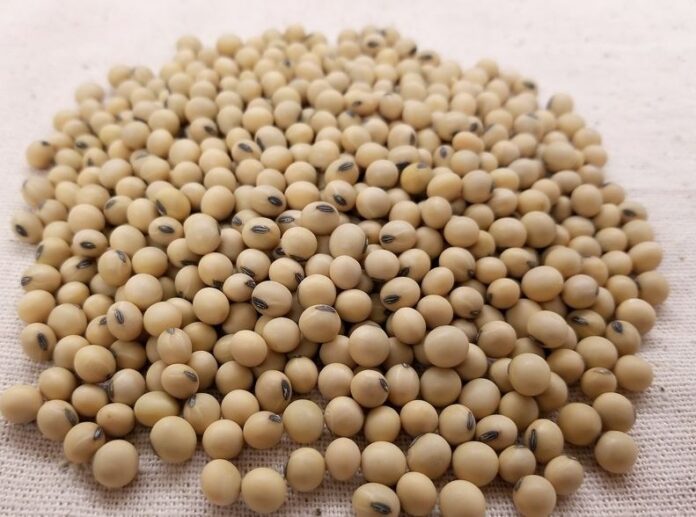The 2022-2023 soybean sales campaign in Togo has officially been launched. According to the national federation of soybean producers, more than 200,000 tons of soybeans will be sold this season. This volume is 40% higher than that marketed in the previous campaign: 150,000 t. Out of the 250,000t that will be marketed this year, 36,000t will be processed locally.
“We have agreed to set up a safety stock for the benefit of processors. The moratorium period that was given last year will not be granted this campaign, but all buying traders will put in place a safety stock for processors,” said Komlan Kadzakade, President of the Interprofessional Council of the soybean sector (CFIS).
The campaign will end on June 30, 2023. For the ongoing campaign, the interprofessional council slightly raised the price per kg of soybean, from CFA186 in 2020 to CFA205.
Soybean in Togo
Soybean is not indigenous to Togo. It was introduced to the country in the 1980s by the German Development Cooperation (GIZ) to provide protein-based food supplement to reduce malnutrition. Testing the different types of beans is important to selecting the varieties best matched to Togo’s soil and climate. In 2015, the Government of Togo partnered with an agricultural research center to test new varieties of seeds and select the most promising ones.
Between 2015 and 2018, 112 tons of these new seeds were distributed to more than 200 cooperatives, through a project managed by the Government of Togo and EIF. The initiative sprouted and production of soybeans grew by 73% in the country during this period.
In 2015, the country produced less than 25,000 tons of soybeans. Since then, production increased five-fold to more than 200,000 tons in 2021. More importantly, the beans reached key markets in the Netherlands, Vietnam, the United States, and India through careful nurturing of the entire soybean value chain by the Government of Togo, with support from the Enhanced Integrated Framework (EIF).








